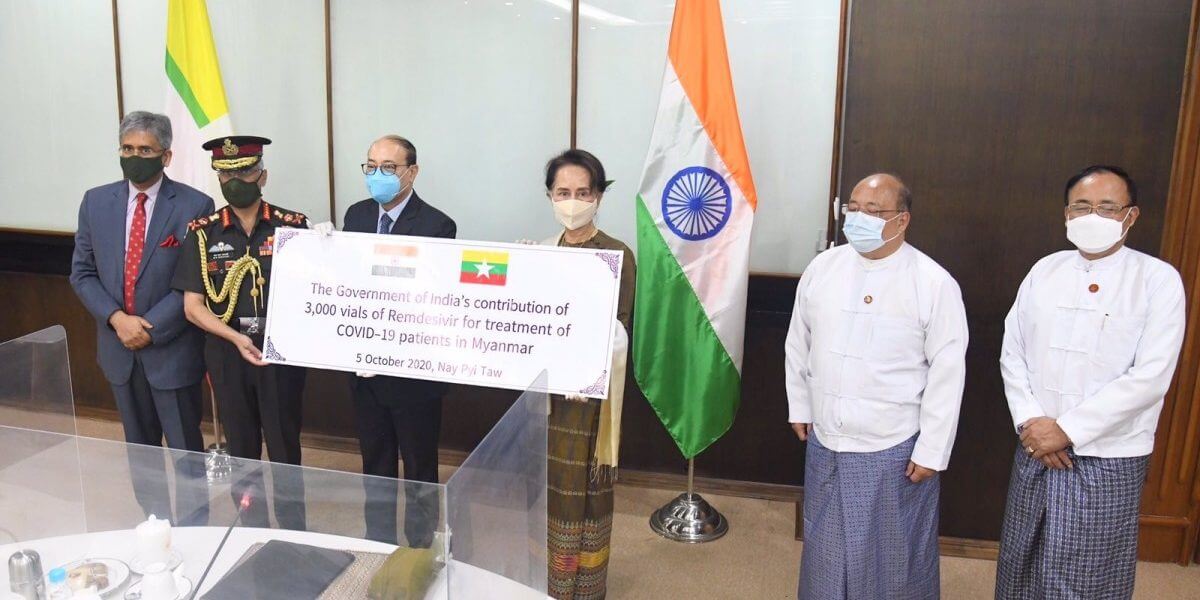On Monday, Indian Foreign Secretary Harsh Vardhan Shringla met with Myanmar’s state counsellor, Aung San Suu Kyi, to discuss bolstering bilateral cooperation between the two countries. Indian Army Chief General MM Naravane also accompanied Shringla for the two-day visit to Myanmar. This is the first time an Indian army chief has accompanied a diplomacy head in a delegation, which is perhaps a reflection of Myanmar’s political structure, in which the military plays a crucial role in governance and decision-making.
One of the major outcomes of the discussion was the agreement to upgrade Myanmar’s “agricultural mechanisation sub-station,” which will lead to an increase in the agricultural productivity of the conflict-stricken Rakhine region using equipment and technology. This is in furtherance of the two countries’ Rakhine State Development Programme, which was set up in 2017. The leaders also discussed the need to promote socio-economic development in the Rakhine region.
Talks between the two sides follow a recent meeting between the foreign ministers of India and Bangladesh, wherein India expressed its commitment to secure the “safe, sustainable, and speedy” return of Rohingya refugees, who are currently housed in Bangladesh, back to Myanmar. As a part of India’s bid to secure the return of refugees back to the Rakhine state, India has also been working with Japan to boost the education sector in the region by supplying books and providing training.
The two sides also discussed the need to ensure security and stability along their 1,640 km-long border. A press release by the Indian Ministry of External Affairs said that both India and Myanmar expressed their “mutual commitment not to allow their respective territories to be used for activities inimical to each other.” In the past, India has repeatedly expressed concern about terrorists from Nagaland and Manipur taking shelter in Myanmar and the need for both the countries to work towards reducing terrorist activities in the region.
To increase connectivity between the two countries, New Delhi also proposed a grant of $2 million for a bridge at Byanyu/Sarsichauk. Further, the two sides discussed the operationalisation of the Sittwe port in Myanmar, which forms a part of the largest Kaladan project aimed at increasing mobility and connectivity between India’s northeastern states and Myanmar by March 2021. For India, the Sittwe port, which will provide the inland regions of the northeast access to the Bay of Bengal, is crucial to connect with Southeast Asia.
India’s decision to send its delegation to Myanmar is motivated by its Neighbourhood First policy, which has evolved to specifically counter Chinese economic and political influence in the region. In September, India also vowed to work closely with Tokyo in pursuance of its Act East forum to increase connectivity between India and Myanmar. This forms a part of India’s broader goal to work towards forming alliances with like-minded countries against Beijing’s growing regional dominance.
Indian Foreign Secretary Meets Myanmar’s Suu Kyi to Discuss Bilateral Ties
This forms a part of India’s broader goal to counter China’s growing economic and political influence in Asia.
October 6, 2020

SOURCE: THE WIRE
